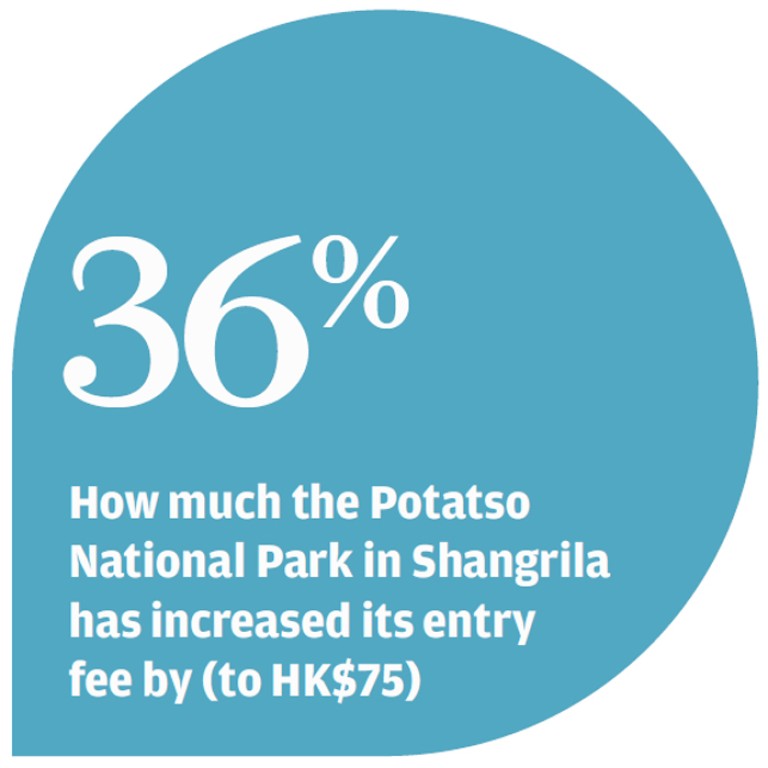
China tourist attractions raise fees ahead of holiday, sparking outrage
Many mainland tourist sites have increased their ticket prices ahead of the Labour Day holiday, with one going as far as doubling it
At least 12 national tourist attractions have raised their ticket prices ahead of next month's Labour Day holiday, with some prices even doubling, sparking a public backlash.

Staff of the scenic area Moshan Hill in Wuhan , Hubei , said yesterday that their entrance fee was doubled, to 60 yuan, in January.
"We kept the price at 30 yuan for many years," she said, declining to be named. She added that the increase was intended to help "cope with rapid inflation as well as pay for maintenance and repairs".
Some of the other tourist attractions to hike ticket prices by as much as 30 per cent ahead of the holiday include the Yellow Dragon Cave and Baofeng Lake in Zhangjiajie , Hunan , the ropeway of the Jade Dragon Snow Mountain in Lijiang , Yunnan, and the Iron Pagoda in Kaifeng , Henan , according to the Guangzhou-based .
"The price of everything is higher now but our salaries aren't," a Sina microblogger wrote. "I'd rather stay home" and avoid paying the higher prices.Last week, the local government in Hunan's Fenghuang town introduced a 148-yuan admission fee to enter the ancient city, which was founded during the Tang dynasty (618-907) and is known for its well-preserved Ming (1386-1644) and Qing (1644-1911) dynasty buildings, as well as its large Miao and Tujia ethic-minority populations.
The fee resulted in a protest by local shop owners last week, and at least 650,000 internet users have participated in an online campaign to boycott trips to the town. The semi-official China News Service reported yesterday that about 100 shops inside the ancient town have been forced to close. cited Cao Peng, general manager of a travel agency in Guangzhou, as saying that the new fee has had impacted their Hunan tours.
"Fenghuang old town was once the main attraction on our Hunan tour," he said, adding that numbers were now falling.

